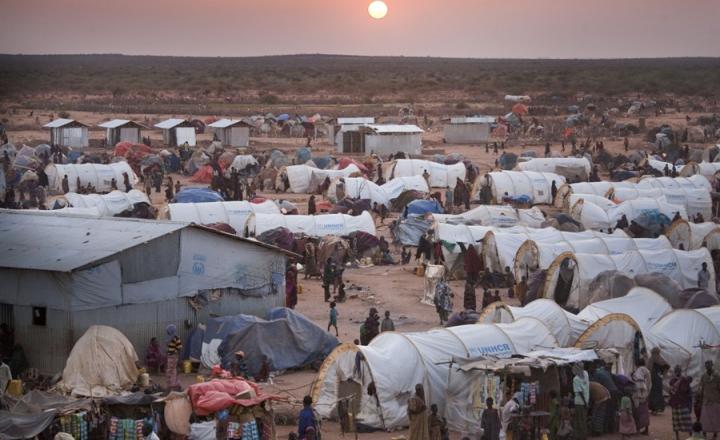Drought and high temperatures are killing people, crops and livestock – we must speak up
by Maha Mansoor and Hilal Elver

Troubles in the Middle East and Europe have distracted world leaders from tackling the growing hunger in Ethiopia caused by the country’s worst drought in at least thirty years. For example, at the most recent UN World Humanitarian Summit that took place in May the hunger crisis was barely touched upon. In all, 10 million Ethiopians will need food and other assistance, and they deserve the attention of and action from the rest of the world.
Over the past eighteen months, the return of El Nino has raised temperatures and dispersed clouds across Eastern and Southern Africa. In total, fifty million people will be affected, a full fifth of whom are in Ethiopia alone. Having already experienced the loss of over 500 000 head of livestock and half of its crop production, Ethiopia stands to lose more as the last of its’ remaining food stocks are being depleted.
The aid needed to curb the hunger crisis in Ethiopia is overwhelming. The United Nations estimates that ten million people are in need of urgent help including two million children. This estimate is in addition to the aid already provided by the federal government’s food assistantship program, which does not include the needs of the refugees and asylum seekers that have poured into Ethiopia from Sudan, South Sudan and Eritrea. Ethiopia has received 700,000 refugees from neighbouring conflict-ridden states, which is only three hundred thousand less than the entire continent of Europe received during its much publicized “migrant crisis.” Yet Ethiopia’s refugee influx has hardly registered in the rest of the world, receiving scant media attention. This must change.
First, we must put pressure on our political leaders to make Ethiopia’s hunger crisis a priority. We must appoint knowledgeable people to lead a directed effort to combat the crisis, earmark funds to provide ground manpower and provide enough food to feed the millions at risk. To those who point to the issue of the overwhelming amount of resources such an intervention might require, it should be highlighted that wealthy countries have spent over $365 billion subsidizing domestic farmers, which has served to effectively deflate the real cost of food for those in the west for decades.
Second, our leaders must put pressure on the Ethiopian government to stop the land grab. Large tracts of fertile land are being leased out to foreign investors who are benefitting from incentives such as income tax and import duty exemptions, while also receiving easy access to domestic credit and land development grants. These incentives allow rich foreigners to create industrial agricultural systems that produce export-designated food, while those who live in these countries starve. To add insult to injury, the land that does remain for local farmers is low in quality, farmers are generally unable to afford the necessary fertilizers or practice the necessary crop rotations to reinvigorate the land, resulting in low yields and food that is low in nutrient value.
Third, companies, organizations and governments must work together to bring new technologies to the farmlands of Ethiopia that allow for socioeconomic development. This means investing in better water purification and access systems, implementing more efficient irrigation systems, and introducing crop varieties that are resistant to drought. While doing this, we must ensure that we are including Ethiopians in the decision making processes and prioritizing their right to adequate food rather than the profitability of foreign entities, which often seek to profit off of the misfortune of others. Most importantly, we must implement effective accountability mechanisms and ensure that while helping Ethiopian’s hunger crises, we do not harm the local economy, without which no community can ever be food secure.
Less than half of the $1.4 billion relief needed has been funded so far. The last time Ethiopia faced a similarly serious drought was in 1984. Two hundred thousand Ethiopians died while the world stood by and watched. This year’s drought is projected to be much worse and the population has more than doubled. We simply cannot let history repeat itself.
Maha Mansoor is a Master’s and JD candidate at Osgoode Hall Law School at York University.
Hilal Elver is the UN Special Rapporteur to the Right to Food and a research professor in global studies at the University of California, Santa Barbara.
